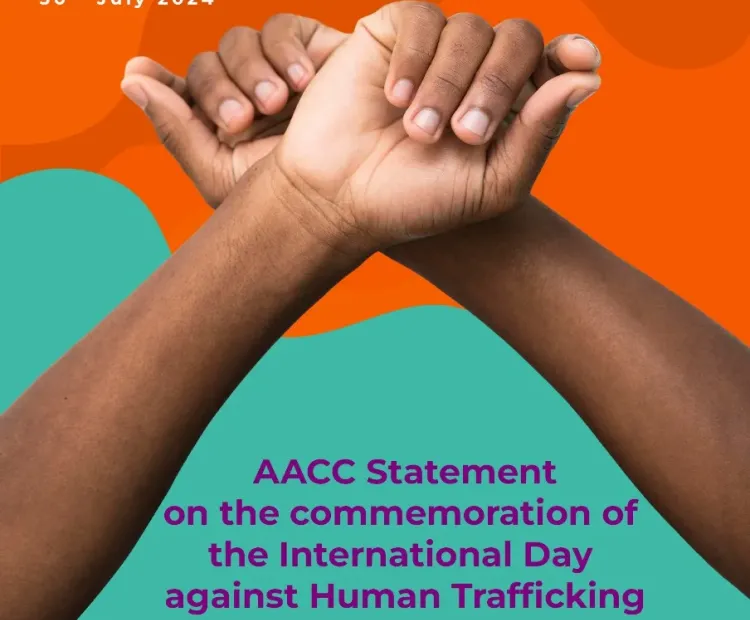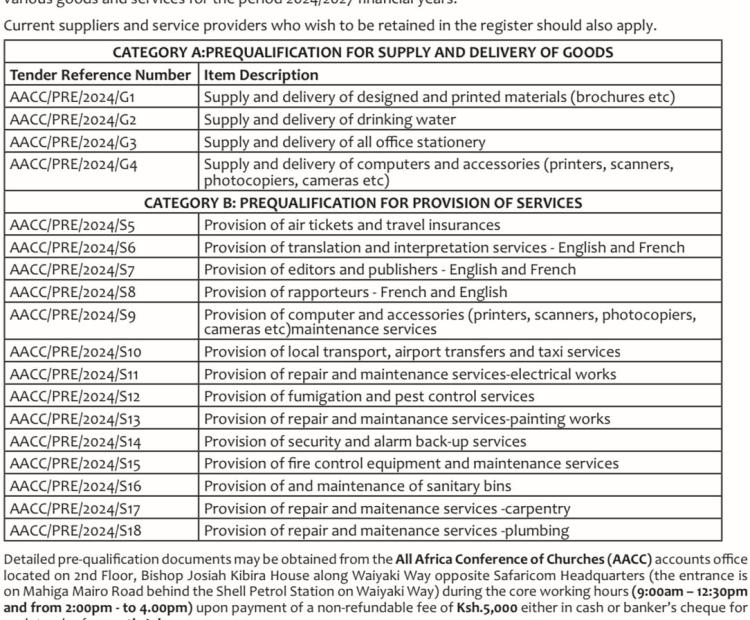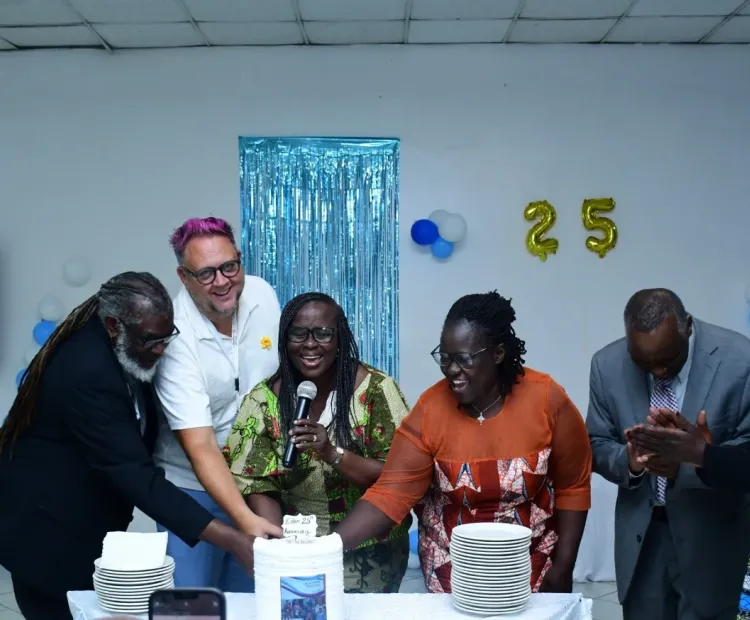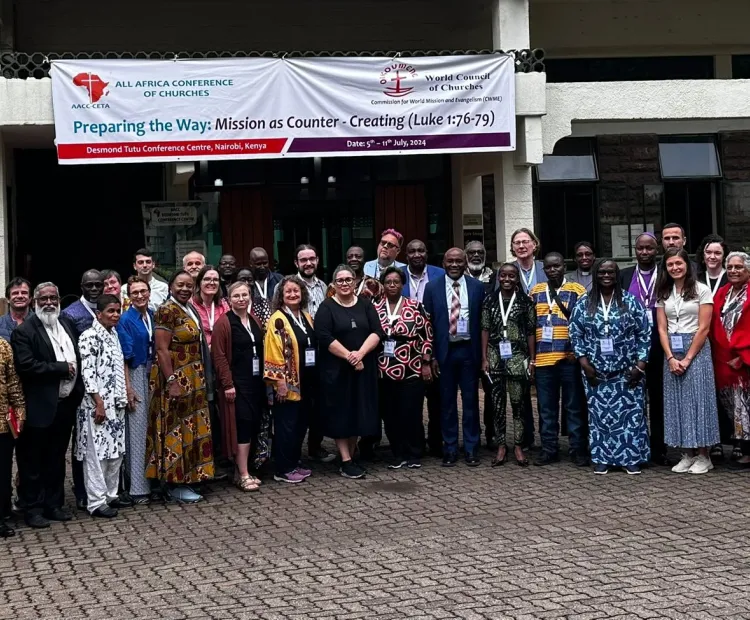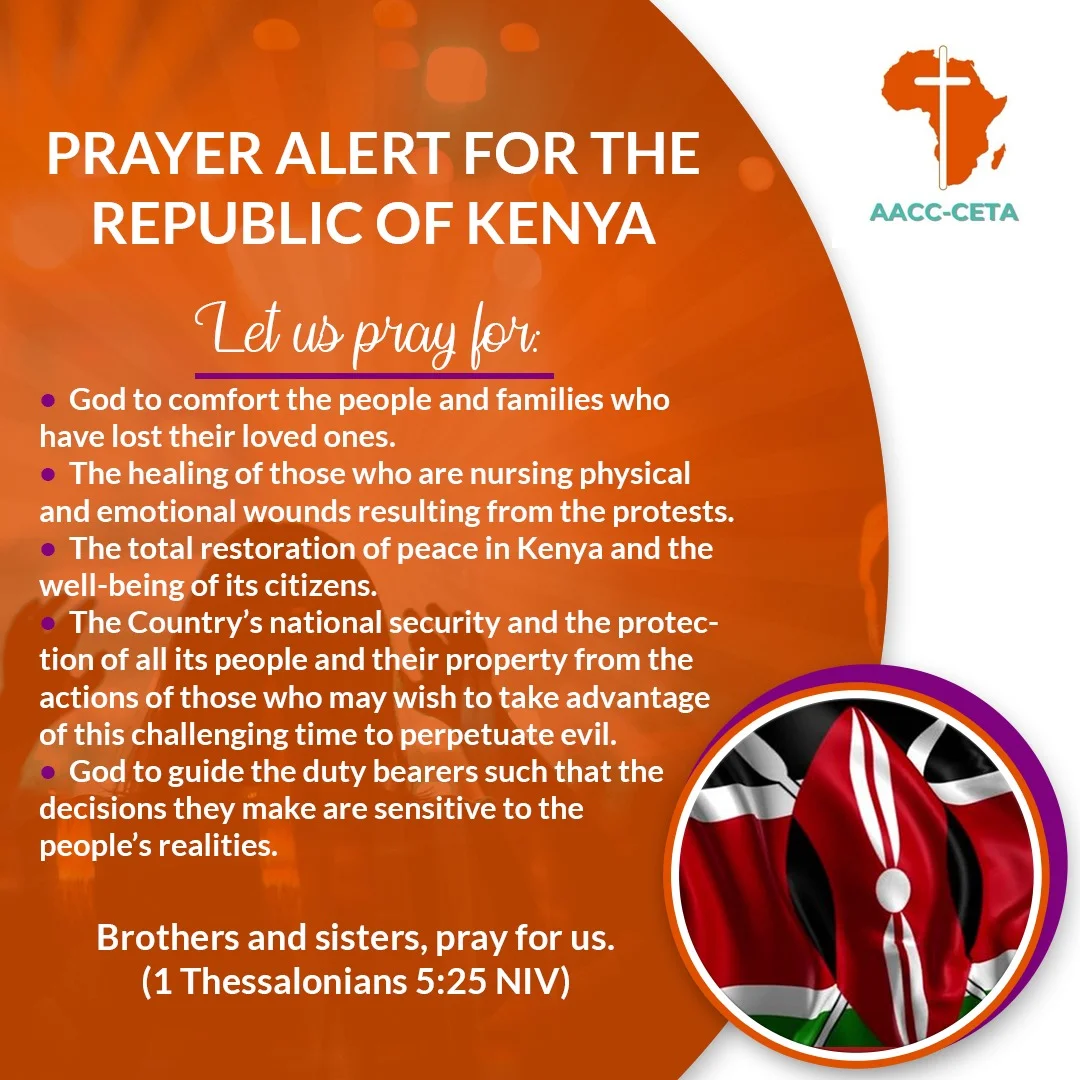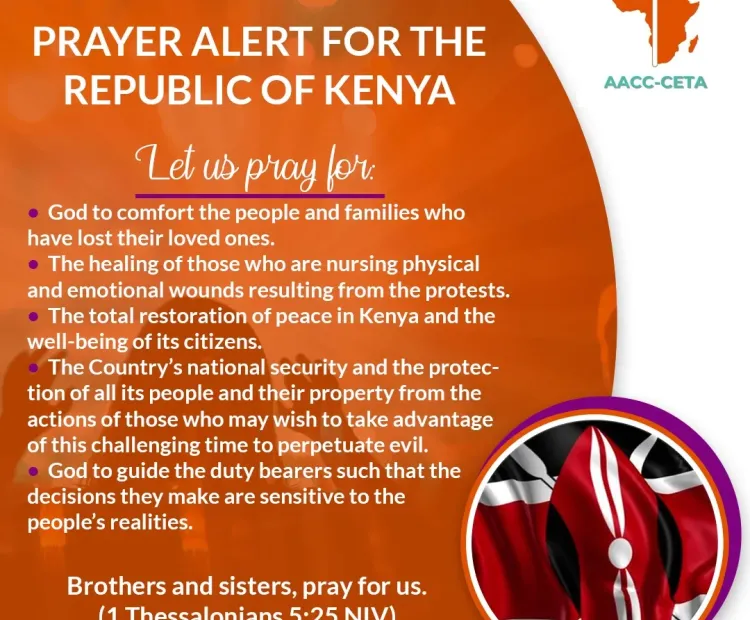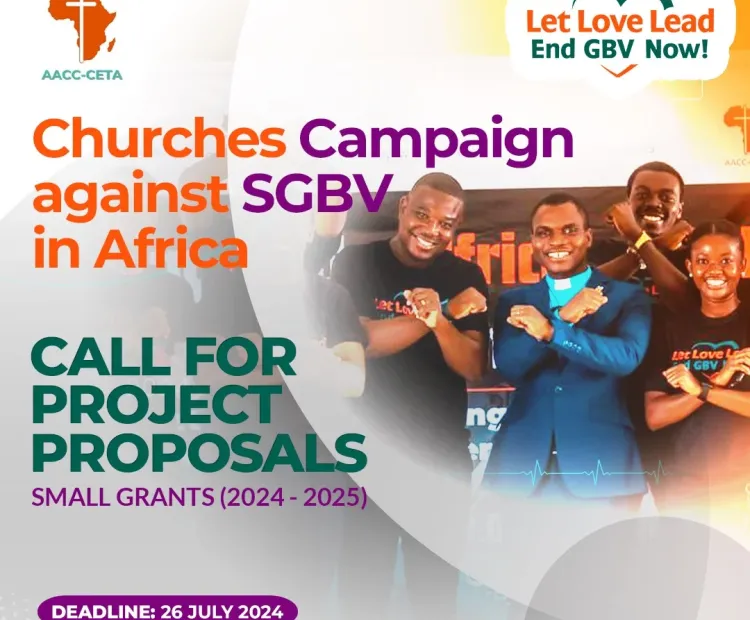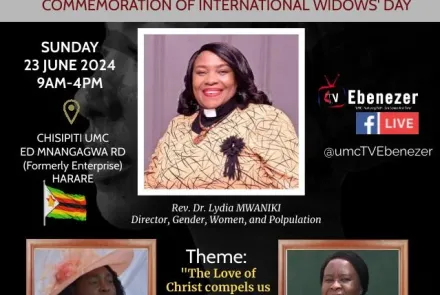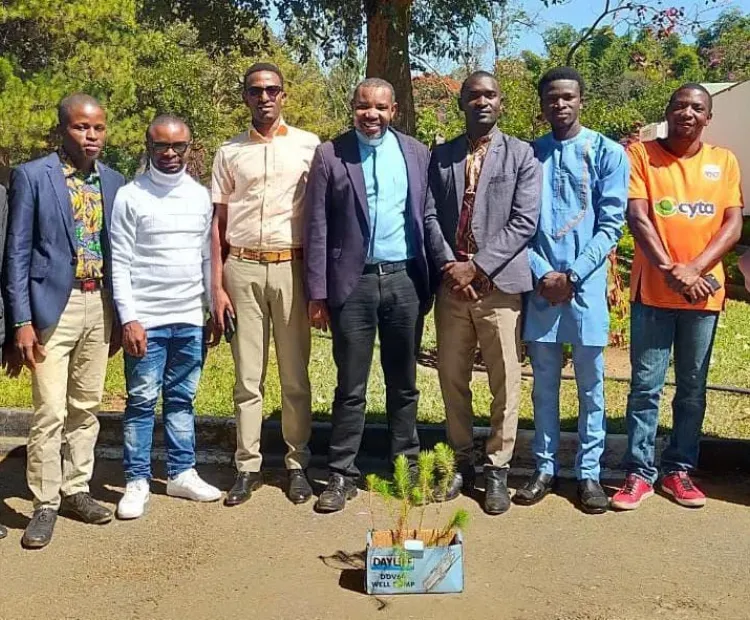PRE-QUALIFICATION OF SUPPLIERS AND SERVICE PROVIDERS FOR 2024/2027
publication image
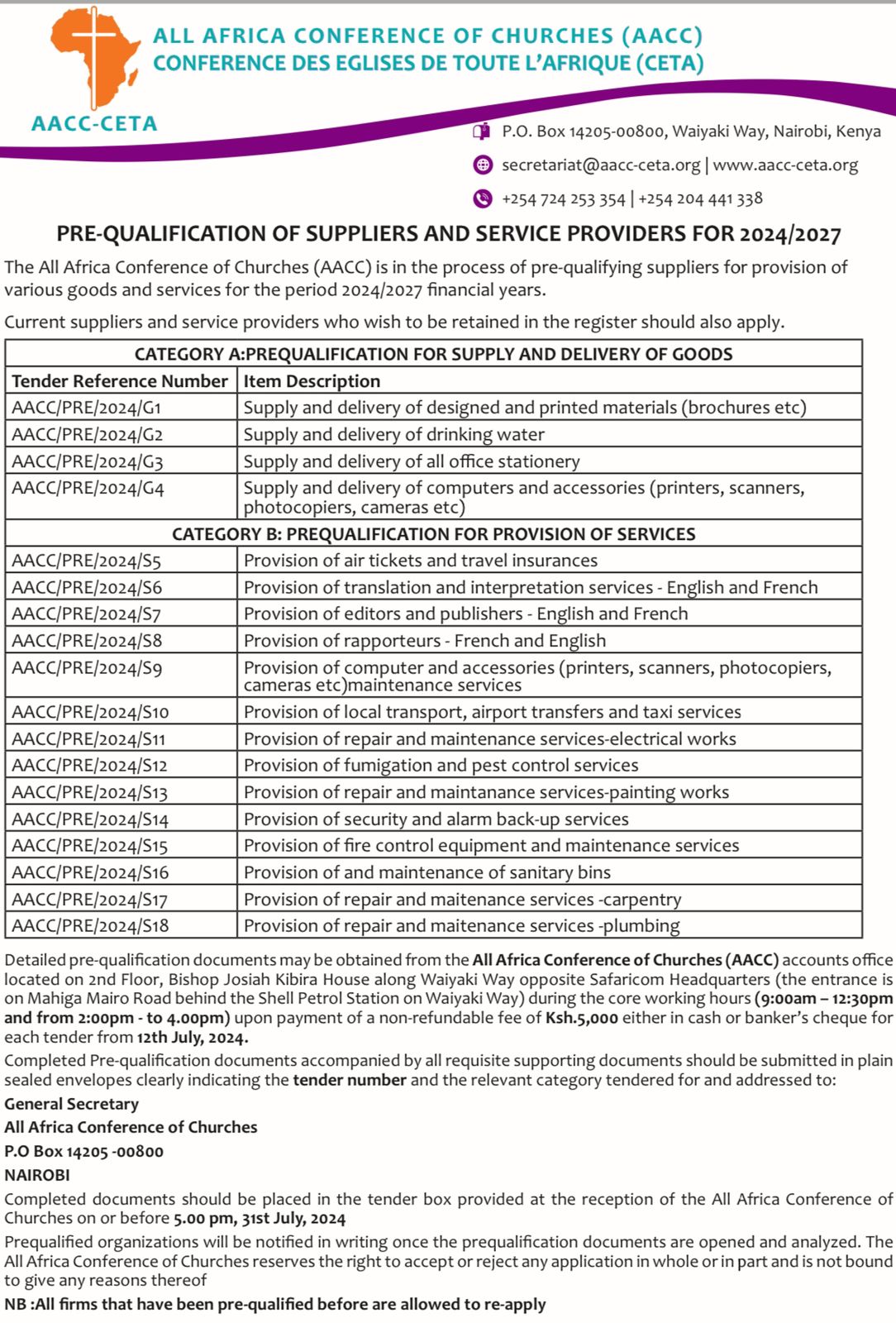
The All Africa Conference of Churches (AACC) is in the process of pre-qualifying suppliers for provision of various goods and services for the period 2024/2027 financial years. Current suppliers and service providers who wish to be retained in the register should also apply.
publication download

